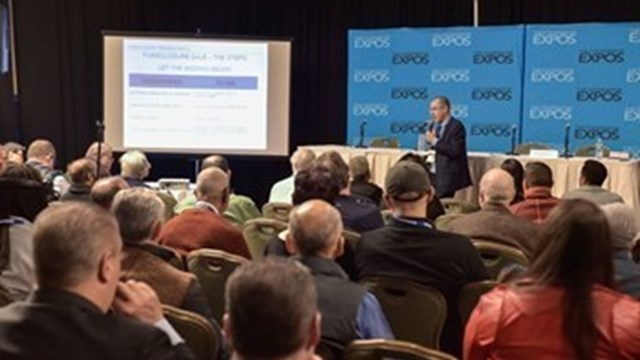It’s hard to imagine how quickly technology has evolved during our lifetimes, and much of that change is a result of how much closer we’ve become—virtually, that is. Whether it’s finding cheap plane tickets, or a restaurant for a Saturday night on the town, the Internet seems to always have the answers. Technology also has transformed the way we communicate by providing us with new places to correspond, through email, message boards and social networking websites. But what is readily available at our fingertips is not always properly used, even if it seems to provide immediate satisfaction.
The Web Necessity
Still, given the need for neighbors to communicate, it’s no surprise that leaders of homeowners associations are using the Web to talk with each other in-house, build community cohesion and to distribute important information. More frequently these days, property managers and board members are taking their communities online and using social networking sites like Facebook, Twitter and LinkedIn to connect with each other. While these tools can be useful in spreading important news around the community, they also can be launching pads for misinformation and rumors, which cause problems in a building. Clearly, how one uses online tools to interact with the community can define the success (or lack thereof) of that communication.
In a time when nearly everyone—from children to septuagenarians—are surfing the web, not having a web presence for a multi-family community is becoming the odd exception. That’s because the easy access for users, and the breadth of contact available through the Internet, is far more effective than other forms of communication.
With technology improving at such a rapid pace, people are expecting more and more information to be available on the web and associations are embracing the trend by providing homeowners with the ability to pay dues online, and providing access to governing documents, meeting minutes, newsletters, and audit reports.
“A website is a benefit if it’s nicely done with accurate information. If someone is looking at an apartment on 1400 Lakeshore Drive, they’re going to google it,” says Michael Daniels, chief operating officer of Cagan Management Group in Chicago. “If it’s well kept up it will add to the resale cost and will take some burden off the manager.” But the very things that make the Internet so attractive as a communications tool, also can have a downside, he adds.
“Having information that is not updated on your website becomes a negative,” says Daniels. “If people see out of date information that translates into you don’t take care of things, and if you can’t maintain a website then you probably don’t do a good job maintaining the building. It gives a bad persona–you have this and you’re not even making sure that it’s working properly. So that’s worse than not having it.”
Associations should also take into account the added expense of a website. “There could be substantial expense and a lot of maintenance involved in having a website,” says Rob Braga, managing director of Kennedy Wilson Properties Group in Chicago. “If it’s a small association, you should ask ‘is it worth it’?”
Difficult to read text, aggressive pop-ups, pictures that don’t download, excessive advertisements, hyperlinks that don’t work are also big no-nos that signify a poorly designed or amateurish website.
Sometimes, using a hard copy newsletter or a piece of regular mail to convey community information might be more appropriate media for a particular message, but some people tend to use the web even for such messages, partly because the ‘net is so easy to use. The ultimate goal for many property management companies is to provide everything online. Any record is generally available to residents online, including violation notices.
Though getting a community online may seem like a tough challenge for late adopters of this medium, companies such as AtHomeNet and AssociationVoice can do the work for the client.
AtHomeNet offers websites designed specifically for homeowner associations, co-ops, condominiums, neighborhoods and communities of all types and sizes. A few features that are included in its web services are announcements, amenities reservations, online payments option, photo albums, message boards, job bids, email bulletins and message boards. Plans begin at $35.00 a month.
You will receive your website within 24 hours from AssociationVoice, a company that specializes in creating websites for coops, condominiums and HOAs. Board members will have several steps to complete for setup, such as uploading documents, entering news items or calendar events, and inputting a community directory. Most communities will have their website ready to launch within a week. Associations are allowed to have as many site administrators as they would like for the community site. AssociationVoice also provides tech support via phone or email during regular business hours with limited weekend hours.
Virtual vs. Real-life
One downside of using the web to communicate with neighbors in a community is that in places with many retirees its elderly residents may not be wired. Some senior citizens may still not be ready to embrace the Internet, even if they’ve used it in the past. The degree of acceptance of the web varies from community to community, and some seniors tend to be more tech-savvy than others, but some places have many residents who aren’t interested in the medium.
“If we are unable to collect an email address, then that’s where it begins,” says Braga. “It’s usually a sign that a resident does not have a computer. If that’s the case then we drop everything in the mail, everything including statements and memos. And most associations still post things on bulletin boards in the hallways.”
“We manage a 55-and-over complex, Belle Plaine Commons in Ravenswood and they have zero interest in having a web presence,” adds Daniels. “When I mentioned website it was shot down within one second. The main thing associations would like to do is get seniors to pay online. A lot of seniors are tech-savvy, they tend to vacation a lot and they’ll communicate with their grandkids through email.”
The tools of the Internet, while needed, cannot replace the human touch. Braga and Daniels both agree that people involved in community management want customer service, and at the end of the day want a human being on the end of the phone line.
And while Facebook can be a useful way for management companies to stay in contact with existing clients, and it also can be a great marketing tool to interest new clients, it doesn’t replace the sound of a real person’s voice, says Tara Chiucchi, a property manager for The Continental Group, based in Florida.
“Some people like to be contacted through phone calls, or they prefer you meet with them at their home or at the office,” Chiucchi says. “While the web won’t detract from a sense of community within an association, people should remember that only those who are comfortable with it will take advantage of it.”
The web shouldn’t be the only means of communication within a community, Chiucchi, adds. “People want to feel that they still matter,” she says.
Many management companies recognize this fact, which is why many still follow old protocol. That means posting door-hangers informing people of community news such as upcoming board meetings, and also dropping letters in residents’ mailboxes when appropriate.
Another negative of using the web for inter-community communication is that it is an impersonal vehicle that users easily disassociate from. Tone is critical in Internet-based messages, but the easy disassociation of users from the medium makes some people less likely to be highly attentive of the tone they are using in the messaging. But in online communications, tone can easily be misinterpreted. And because of these and other unique characteristics, the web can be a bad place to negotiate or mediate issues.
The advantages of creating and maintaining a web component to a neighborhood’s communication plan are obvious—most people are online these days, and providing information they need on the web means serving them better. And while there are few people these days that don’t use computers, even those who avoid the machines have neighbors with a PC or laptop. Clearly, nearly all multi-family communities can benefit from using online communications tools such as a website, or a social networking site. Experts agree that a community’s website should be attractive and easy to read, and that it should include information that people want and are likely to access. But who is responsible for the community’s online communications? That depends upon the community.
While many management companies will handle the start-up work for a community website, that’s just a beginning. The question of who adds content to a community website, and who updates the site regularly, is a decision made by the community’s board of directors. The ruling group may choose to have the management company update the site, or they could elect one of their own—such as the board’s secretary—to handle the updates. Control of the content of the community’s website is not a given, and if content on it is allowed to be posted unregulated, the site could become a source of rumors, which is the opposite of its purpose.
Even if a board uses a seamless way of updating a community’s website, some residents could still be left out of the online loop. Even so, managers and board members can close the information gap between computer-using residents and those who don’t use computers by providing some redundancy in communications. Many management companies provide newsletters once, twice or four times a year by regular mail as well as online. Others back up important notices posted online by sending such notices directly to residents’ homes via door-hangers, and by posting them on physical community bulletin boards.
Providing such information via regular mail can be a fine line, though. Copies and postage can add up and be costly, and excessive requests for such information by regular mail might cause some management companies to draw the line on the requests at some point.
Jonathan Barnes is a freelance writer and a regular contributor to The Chicagoland Cooperator and other publications. Staff Writer Christy Smith-Sloman contributed to this article.







Leave a Comment